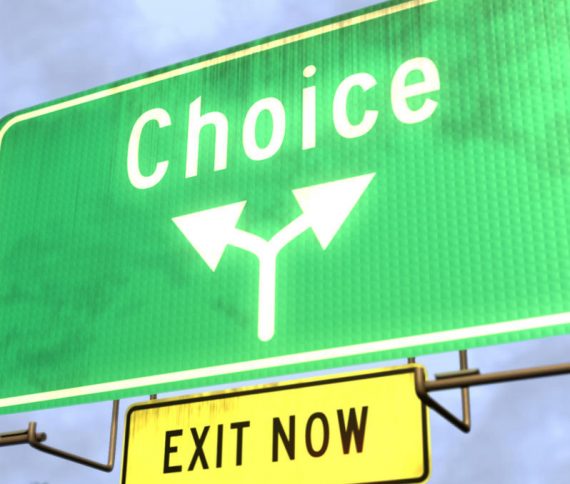Rank-Ordered Preferences
More thinking about the 2024 GOP primary.

In my capacity as a college dean, I often have conversations wherein choices have to be made to address specific administrative difficulties. These conversations often involve trying to solve a specific person’s problem (I would note similar scenarios helping adult children make life choices). Such a conversation might go as follows.
A scenario occurs wherein an ideal outcome is essentially impossible to achieve because reality has a maddening way of being less than ideal. There is a core choice to be made, X or Y. In the course of the conversation, both X and Y are considered suboptimal in various ways, and alternatives/variants of the choices, A, B, C, etc., are explored. As those alternatives are considered, it becomes clear that only option X, for all its flaws, is the only truly acceptable outcome to the person who will have to live with the decision.
The result is a grudging acceptance of X, not because X is great, but because there are reasons that Y, A, B, C, and whatever else we can think of, are simply more unacceptable than X is.
This is simply a process of rank-ordering key preferences and picking, in the absence of an ideal solution, the best possible real option that one prefers to the others (or, more likely than not, the least bad).
Keep in mind that in such situations only one choice can be made, so at some point, the core preferences have to be understood and ranked. Even just standing pat with the status quo is a choice.
Most humans have to do this all the time, for matters large and small.
We can be in a position wherein X makes us miserable, but we know that Y, et al., will make us even more miserable, and often for different and competing reasons.
This is a more abstract way of making the points I made the last two weeks, and that James Joyner re-iterated this morning.
Everyone needs to understand that the top-ranked preference for Republicans is to defeat the Democrats at the ballot box in November of 2024, most especially for the presidency.
Even those who would prefer an ideal reality wherein Trump is not their candidate, will look at their options and decide that Priority One is getting rid of Biden, even if Trump is suboptimal in any number of ways.
We can argue all day long about how they should see that Trump is so terrible that Republicans should shun him, but that ignores the simple fact that on balance they do not see a better alternative to achieving their top goal.
Again, this is why I asked the initial question a few weeks ago about which GOP politician has the best chance to beat Biden. I maintain that the one who does is the one who won the EC in 2016 and came within spitting distance of winning it a second time in 2020.
DeSantis clearly does not have what it takes.
Ramaswamy is a talking meme (and plus, if you like what he is selling, you have no problem embracing Trump).
The rest of the candidates are just so many nobodies at the moment (and with little chance to really emerge).
And if you say that someone like Georgia Governor Kemp or Virginia Governor Glenn Yongkin should be drafted, the reality is that they are untested on the national stage and are soooo far behind in the process now as to be utter non-starters.
I am not saying that there isn’t some scenario wherein all of this gets reshuffled (although such scenarios are either something truly dramatic, like death or a major health problem for Trump, or something so nuts that we can’t envision it). I am saying that it is perfectly rational for a Republican voter, whose top rank-ordered preference is to defeat Biden to support Trump at this stage.
That there are moral implications for voting for Trump is very much still on the table, but I will again remind everyone that the human mind’s ability to rationalize choices in the face of conflicting preferences is vast. And, I would hasten to add, that the Trump administration delivered on some key GOP preferences, and that cannot be discounted in this conversation.
Is it really so hard to see some Republican voter telling themselves that the anti-democracy talk is all rhetoric and, by the way, did you notice that Roe v. Wade was overturned and that SCOTUS will be conservative for decades? And how ’bout those tax cuts?
I think GOP voters make a grave error not to take Trump’s anti-democracy talk seriously. I think it is a mistake to ignore his corruption. But as a social scientist, it is incredibly easy to understand why we are where we are.
And I would hasten to add that if we ever want real safeguards against having this kind of binary choice we need to cultivate and support reforms that will help bring about a multiparty system. That way voters in the future will have more than two options and therefore not find themselves having to rationalize so hard as to why their team is best and the other team is just unacceptable.
I understand that getting ranked-choice voting in national elections is a heavy lift but… could we at least get ranked-choice polling? I mean, wouldn’t pollsters be happier getting more information, and having more to talk about? Wouldn’t the horserace media be happier with more “analysis” to provide to “inform” their customers?
(FWIW, I am occasionally called upon in my professional capacity to facilitate group decision-making in situations with multiple criteria and sometimes disparate agendas among the stakeholders. So you get an “Amen, brother” from me.)
Yeah, something like a third to half of Republican voters would love to have an opportunity to ditch Trump, but there’s nowhere to go. They are having lots of trouble all aggregating on one candidate.